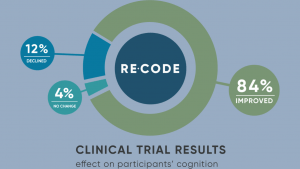Insulin Resistance – The Connection and How to Combat It. Understanding the Relationship Between Insulin, Blood Sugar, and Brain Health
Introduction
What if I told you that memory loss and cognitive decline could be linked to something as common as insulin resistance? Groundbreaking research increasingly connects Alzheimer’s disease to metabolic dysfunctions like insulin resistance and type 2 diabetes. At the Carroll Institute, we specialize in uncovering and addressing the hidden drivers of cognitive decline, offering proactive strategies to keep your mind sharp as you age.
In this article, we’ll explore the connection between high-carbohydrate diets, insulin resistance, and brain health—and how adopting a ketogenic diet could be a game-changer for preventing and reversing cognitive decline.
What Is Insulin Resistance?
Insulin resistance occurs when your body’s cells become less responsive to the hormone insulin, leading to elevated blood sugar levels. Over time, this can wreak havoc not just on your physical health but on your brain as well.
The Path to Insulin Resistance
- High-Carbohydrate Diets and Blood Sugar: The rise of processed, carbohydrate-heavy diets since the 1970s has led to frequent blood sugar spikes. Unlike fats and proteins, carbohydrates break down quickly into glucose, which floods the bloodstream.
- The Role of Insulin: Insulin helps transport glucose from the blood into cells for energy or storage. When carb intake remains high, the pancreas works overtime to produce more insulin.
- Resistance Develops: Overexposure to insulin makes cells resistant to its effects, leaving blood sugar levels chronically high. Over time, this can lead to type 2 diabetes—and it doesn’t stop there.
Insulin Resistance and Brain Health
The effects of insulin resistance extend far beyond diabetes, playing a major role in cognitive health:
- Starving Brain Cells: Insulin resistance limits glucose uptake in the brain, depriving cells of their main energy source. This “cell starvation” can lead to brain shrinkage and eventual cell death, hallmarks of Alzheimer’s disease.
- The “Type 3 Diabetes” Connection: Due to its link to impaired glucose metabolism in the brain, Alzheimer’s is often referred to as “type 3 diabetes.”
- Inflammation and Amyloid Plaques: Insulin resistance promotes inflammation and accelerates the formation of amyloid plaques—sticky protein aggregates that interfere with brain function and are a defining feature of Alzheimer’s.
The Ketogenic Diet: A Potential Solution
If you’re concerned about memory loss or cognitive decline, dietary intervention offers hope. The ketogenic (keto) diet—a high-fat, moderate-protein, and low-carbohydrate approach—addresses insulin resistance at its root.
How the Keto Diet Works
- Lowering Blood Sugar and Insulin Demand: By drastically reducing carbs, the keto diet minimizes blood sugar spikes, allowing insulin levels to stabilize and cells to regain sensitivity.
- Fueling the Brain with Ketones: In the absence of glucose, the liver produces ketones from fat, which serve as an alternative energy source for the brain. This shift not only fuels brain cells effectively but also reduces the buildup of amyloid plaques.
Benefits of the Keto Diet for Brain Health
Switching to a ketogenic diet can offer profound benefits for cognitive function and overall brain health:
- Improved Memory and Cognitive Performance: Studies show that a keto diet enhances verbal memory and supports overall cognitive abilities.
- Prevention of Cognitive Decline: Early adoption of a low-carb, high-fat diet could reduce the risk of developing Alzheimer’s and related conditions.
- Reversal of Insulin Resistance: Resensitizing cells to insulin not only mitigates type 2 diabetes symptoms but also improves the brain’s energy supply, creating an environment where cognitive function can thrive.
Take Control of Your Cognitive Health
Insulin resistance is a silent but powerful force behind memory loss and cognitive decline. The good news is that it’s never too late to take action. By adopting a ketogenic diet and understanding how to support your brain through personalized testing and guidance, you can preserve your cognitive health and independence.
Your Next Steps
If you’re experiencing brain fog, forgetfulness, or memory lapses, it’s time to uncover the root cause. At the Carroll Institute, we offer the Cognitive Action Panel—a comprehensive lab test that identifies early warning signs of cognitive decline and provides a clear roadmap for reversal.
Ready to take control of your health? Learn more about the keto diet and other personalized interventions by visiting thecarolinstitute.com.
Stay Connected
Enjoyed this article? Share it with someone who might benefit, and don’t forget to subscribe to our YouTube channel, The Longevity Toolkit. Hit the notification bell for updates on our latest videos about reversing cognitive decline and optimizing brain health.

